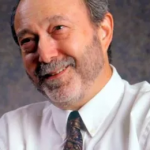Your Hosts


Where & When
About the course
Addictions and other trauma responses are increasing day by day as people cry out for help. We desperately need a fresh approach that treats the trauma of addiction where it lives; in the body. The fields of trauma and addiction have developed separately, yet when we treat one we are very often working with the other. And the state of addiction is traumatic in and of itself. So, how do we work with both? In this workshop we will explore the intersection of trauma and addiction and how to address both with an embodied approach.
The Felt Sense Polyvagal Model shifts the current pathologizing paradigm to a strength based approach. Through the lens of Stephen Porges’ Polyvagal Theory, addiction is seen as an adaptive stress response in our autonomic nervous system. Addictive behaviors are the bodies’ attempt to emotionally regulate by acting as propellers that facilitate neurophysiological shifts in our nervous system. The model integrates Porges’ Polyvagal theory, and Gendlin’s Felt Sense Focusing Oriented Psychotherapy process, enabling us to appreciate trauma/addictive behaviors as adaptive responses to maladaptive environments. It provides a generic framework that can support any therapeutic modality.
The Felt Sense Polyvagal Dialogue is a tool that integrates Imago therapy with the model. This provides a methodology for working with couples and families that engages them in an embodied approach. The webinar series includes a description of the theoretical framework, and an introduction to The Embodied Assessment and Treatment Tool. This tool reflects the experiential nature of a body based psychotherapy. A mixture of didactic information, experiential practices, three demonstrations and case examples will guide the clinician on how to apply the model. This course will be informative for those new to the field of trauma/addiction as well as seasoned practitioners.
The course combines on-demand lectures by Jan Winhall with recorded conversations between Jan and Steven Porges which further detail polyvagal principles presented in the coursework. Also included is a live 90-min Q&A session with Jan held at 12:00 pm September 10, 2021.
The availability of 8.5 CE's are currently pending.
Required reading: Treating Trauma and Addiction with the Felt Sense Polyvagal Model, by Jan Winhall, Routledge, 2021. 20% off purchase using this code: FLR40
website: www.janwinhall.com
email:
Instructor Information:

Jan Winhall M.S.W. R.S.W FOT
Jan Winhall, M.S.W. F.O.T. is an author, teacher and psychotherapist. She is an adjunct lecturer and practicum supervisor in the Department of Social Work, University of Toronto. Jan is director of Focusing on Borden, a psychotherapy and training center. She has built a community of people who teach and practice Focusing as a way of life. Jan presents internationally on trauma and addiction.
Her upcoming book, Treating Addiction with The Felt Sense Polyvagal Model: A Bottom Up Approach is the result of rethinking the Felt Sense Experience Model that she wrote about in Emerging Practice in Focusing- Oriented Psychotherapy, 2014.
"In Treating Trauma and Addiction with the Felt Sense Polyvagal Model Jan Winhall introduces a new strategy to treat addiction that brilliantly integrates Gendlin’s classic concept of a felt sense with Polyvagal Theory. The author shares her intellectual journey in which unique insights transform two disparate perspectives into obvious complements leading to a powerful treatment model." ―Stephen W. Porges, PhD, scientist, author, creator of Polyvagal Theory.
"In this insightful volume Jan Winhall brings together the essence of groundbreaking modern therapeutic practices with her own decades of hard-won clinical experience to fashion a new, deeply humane and promising model of addiction treatment, illustrated by poignant clinical vignettes." ― Gabor Maté, MD, is the author of In the Realm of Hungry Ghosts: Close Encounters with Addiction.
"Reframing addiction and its treatment through the lens of Experiential Psychotherapy, Polyvagal Theory, Interpersonal Neurobiology and Imago Relationship Therapy, Jan Winhall has produced a brilliant synthesis and expansion of addiction theory and treatment that should be read by all therapists, not just addiction specialists." ―Harville Hendrix, PhD, and Helen LaKelly Hunt, PhD, authors of Doing Imago Relationship Therapy in the Space Between

Stephen W. Porges, PhD
Stephen W. Porges, Ph.D. is Distinguished University Scientist at Indiana University where he is the founding director of the Traumatic Stress Research Consortium in the Kinsey Institute. He is Professor of Psychiatry at the University of North Carolina, and Professor Emeritus at both the University of Illinois at Chicago and the University of Maryland. He served as president of the Society for Psychophysiological Research and the Federation of Associations in Behavioral & Brain Sciences and is a former recipient of a National Institute of Mental Health Research Scientist Development Award. He is the originator of the Polyvagal Theory, a theory that emphasizes the importance of physiological state in the expression of behavioral, mental, and health problems related to traumatic experiences. He is also the creator of a music-based intervention, the Safe and Sound Protocol ™, which is used by therapists to improve language processing, state regulation, and spontaneous social engagement.
